Pupils
Engineering
Course Information
| Literacy | *** |
| Numeracy | **** |
| Communications | *** |
| Creativity | **** |
| Practical | **** |
| Group Work | ** |
| Examination Assessment | 60% |
| Non Examination Assessment | 40% |
| EBacc | x |
| Examination Board | AQA |
| Course | GCSE |
General Information
Engineering gives pupils an excellent opportunity to develop knowledge, skills and understanding in the context of real-world engineering and by encouraging learning through studying of real engineering companies. It offers hands-on experience of skills needed in the engineering field. Pupils will study current and past engineering developments, relating this to real life experiences. The course provides opportunities to develop designing and practical skills, including the use of modern technologies i.e. CADCAM (Computer Aided Design Computer Aided Manufacture) tools and equipment. The subject provides an excellent route into the world of Engineering, but can also lead you into working in a wide range of other design and manufacturing careers.
What will I need to succeed?
Pupils should have an enthusiasm for designing and making. The pupils will build on their Key Stage 3 Design and Technology knowledge. This qualification is intended for pupils who are interested in understanding the working properties of materials, whilst learning how to use these materials in a practical way. The course goes onto look at the scientific and mathematical principles behind engineering, as well as developing a practical understanding of the application of electronic and mechanical principles. It will particularly appeal to pupils who are looking for a course that is practical in nature and will prepare them for further study and employment within related industries.
To succeed in this course pupils should have:
- an enjoyment of practical work and exploring different solutions in different contexts and materials
- an enjoyment of exploring ideas and modelling them using ICT as well as hands on construction
- you need to be inspired and motivated to gain an insight into related sectors, such as manufacturing
- an enjoyment of scientific principles (physics) and learning how these are applied to real world engineering scenarios.
- a good understanding of Mathematical principles and the ability to apply these to solve problems involving formulas and units of measurement
Expected Subject Content
Pupils will develop engineering skills by undertaking focused practical tasks. This will involve a hands-on experience of using the tools and equipment relevant to engineering, including the use of CADCAM (Computer Aided Design, Computer Aided Manufacture). Pupils will work in a range of materials, to manufacture items using the Brazing Hearth, Hand tools, Lathe and Milling machine.
Pupils will also learn about:
- Pneumatic and Mechanical Systems;
- Engineering Materials, including calculating stress, strain and failure points;
- Systems (Electrical, Mechanical and Pneumatic);
- Testing and Investigation;
- Manufacturing processes;
- The impact of Modern Technologies.
Lesson Structure
Lesson time will be divided between 50% practical project work and 50% theory.
Expected Assessment Requirements
This GCSE will have a practical unit and an externally assessed examination.
GCSE – will be weighted 50% NEA (new term for Controlled Assessment) 50% written examination paper (1-9 Grades).Expected Assessment Requirements
The brief for the NEA is released on 1st June in year 10.http://www.aqa.org.uk/subjects/engineering/gcse/engineering-8852
What careers it can lead to after leaving Swanmore College
Having a qualification in Engineering can lead to many further courses and careers. Examples of the many careers include civil engineer, heating systems designer, railway engineer, aerospace engineer.
